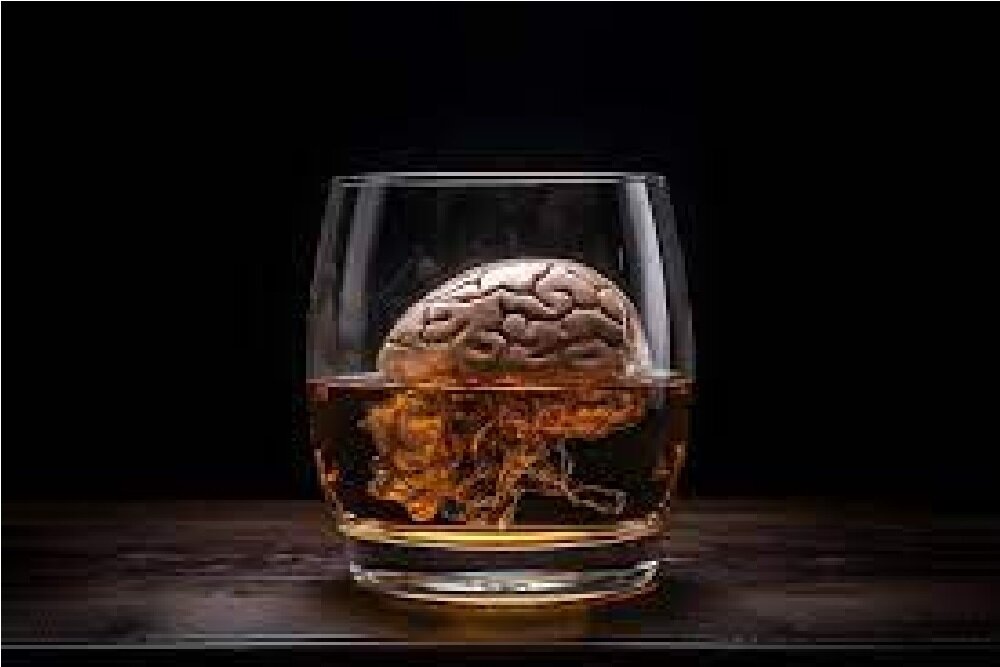A new study has shown that consuming two units of alcoholic beverages per day makes the brain older as old as a decade.
According to RCO News Agency, One study of more than 6,000 high -quality MRI brain scans in the year showed that drinking four units of alcohol per day, equivalent to two glasses of beer or wine, can cause structural damage and reduced brain volume, equivalent to 5 years old.
These findings were like observing the summit of an iceberg for researchers who deal with how alcohol affects our brain.
According to the New Atlas, science about alcohol can be confusing and dumb. A rapid survey between news and scientific articles over the past years shows that alcohol consumption directly causes cancer, stops the development of a growing brain by nearly 2 %, permanently damages DNA, and is certainly associated with early dementia.
Some of these studies focus on regular and medium alcohol consumption, while others research alcohol addiction at high levels. Some of these studies are also human, and others are animal or laboratory studies. Some are severely controlled, others evoke the chaos of the real world. Some small studies are large and diverse, and it is difficult to result.
So in year 2 a special study was published that attracted attention. The study, led by a group of Pennsylvania University, examined the MRI scanning of 1,800 patients stored in the British biotechnology. The study pursued a previous study that focused on severe alcohol consumers, women who drink at least three glasses of alcoholic beverages per day and men who consume at least four glasses.
Previous neural imaging studies have shown how continuous alcohol abuse at high levels damage the brain over time, leading to changes in brain structure and joints and overall brain volume decreases, most of which are in the frontal lobe, diraflon, hipocampus and cerebellum. But according to the researchers, most of these studies were small and some contradictory and others were not well controlled.
Therefore, this study analyzed a large data set. The British biotech has the largest high -quality MRI scan in the world, and the researchers have been able to examine 3,000 patients about their alcohol drinking habits. Therefore, these MRI scans can be classified for reported alcohol consumption and controlled for cases such as head, sex, age, height, smoking status, changing social status, and other economic conditions.
It is worth noting, however, that this collection is limited to European middle -aged European people. There was also no information on things like alcohol drinking events in the past, and self-reporting may not be an accurate display of behavior in the real world.
However, the findings were quite clear. The team found that consuming only one to two units of alcohol daily reduces the overall volume of the brain and the volume of gray matter in a number of areas and microstructures in white matter. It is worth noting that a glass or can of beer or a glass of wine means consuming two units of alcohol.
The researchers have tried to put everything into a framework by comparing the reduction of brain volume with what happens naturally with age. In this context, going from zero unit of alcohol to one unit daily, almost as much as it is expected for six months, shrinks the brain, but its effect is not linear, but a combination.
The researchers then found that going from one unit to two units daily is approximately two years old, and from two units daily to three units as three and a half years old.
People who drink four or more alcohol units daily, compared to people who do not drink alcohol, had a full 5 -year old age of old age.
The warning point is that this amount of brain shrinkage by alcohol consumption is only a consumption of two cans or glasses of alcohol, which is a small for many alcohol consumers.
“There is evidence that the effect of drinking alcohol on the brain is exponential,” says Remi Daviet, a researcher at the University of Wisconsin. Therefore, consuming an extra drink a day can have a greater impact than previous drinks.
Researchers say we have been looking for further research on how alcohol affects the brain or aging in year 6, and it didn’t take long to see a process.
Two other studies discussed this issue in year 2. One looks at the data of approximately 6,000 people, showing the relationship between alcohol consumption and biological aging, which shows that drinking alcohol can accelerate aging directly.
Another study showed that consuming at least four alcoholic beverages a week could be associated with bio -brain markers associated with cognitive decline. Most new research on how alcohol accelerates brain aging has focused, while the study identified the structural changes of the brain in chronic alcohol consumers.
In addition, a study in Year 2 concluded that when we deal with alcohol consumption with dementia, there is no level of safety of alcohol consumption.
The updated study of Year 2 has just been published in the journal Nature Communications.
The end of the message
(tagstotranslate) Alcohol (T) Alcohol (T) old
RCO NEWS


















